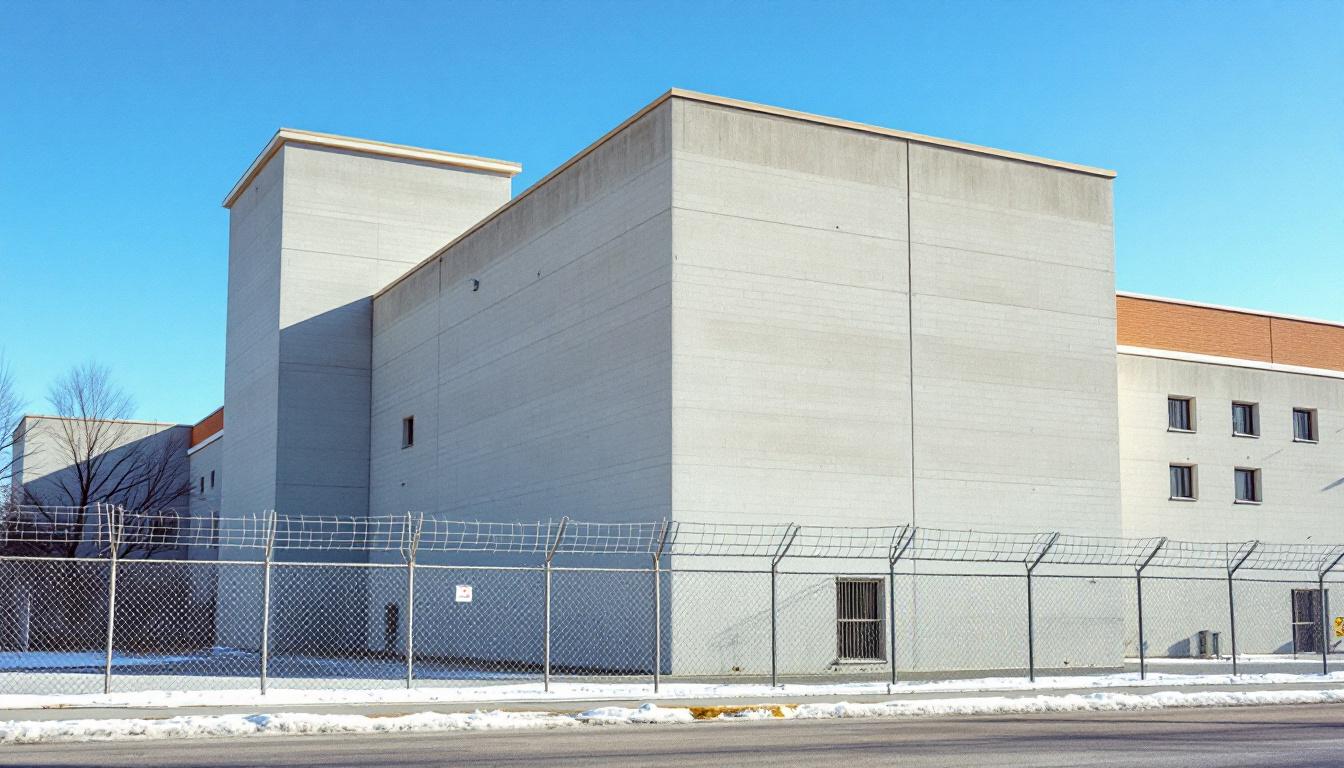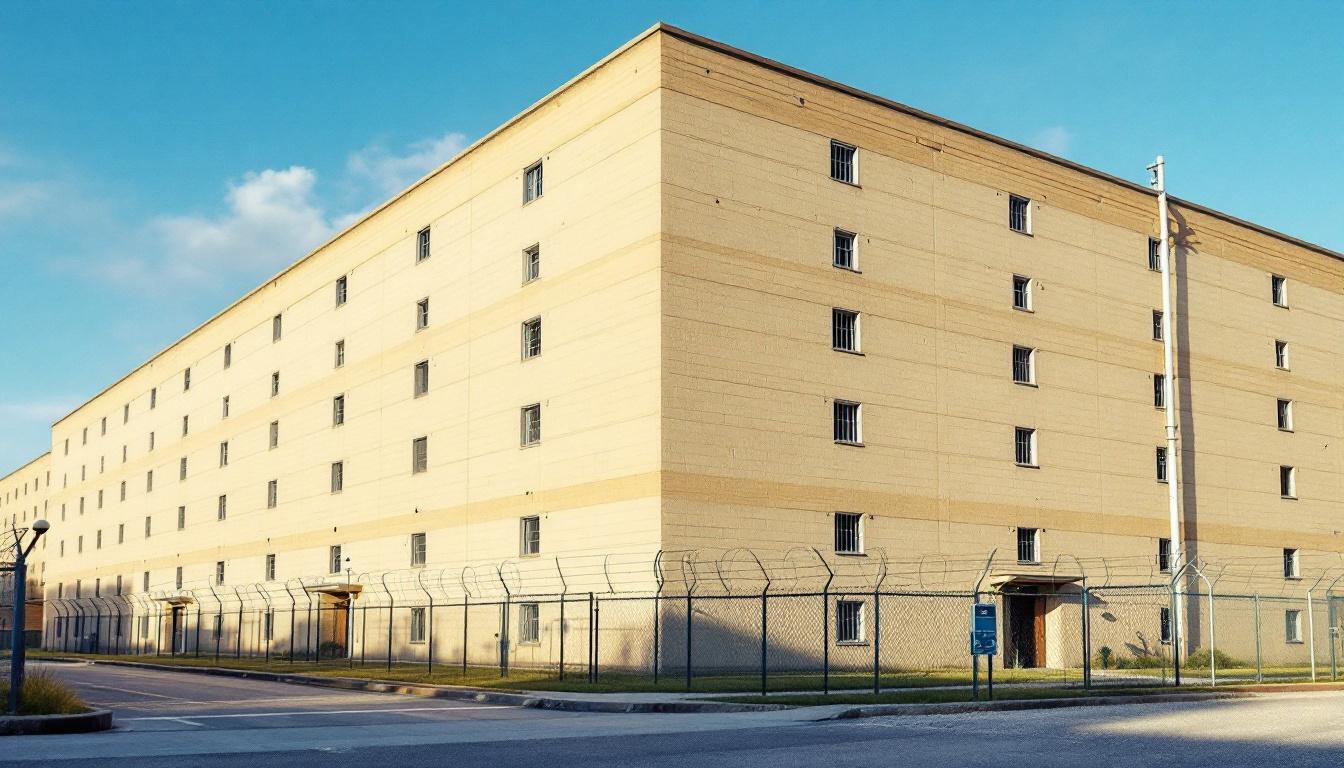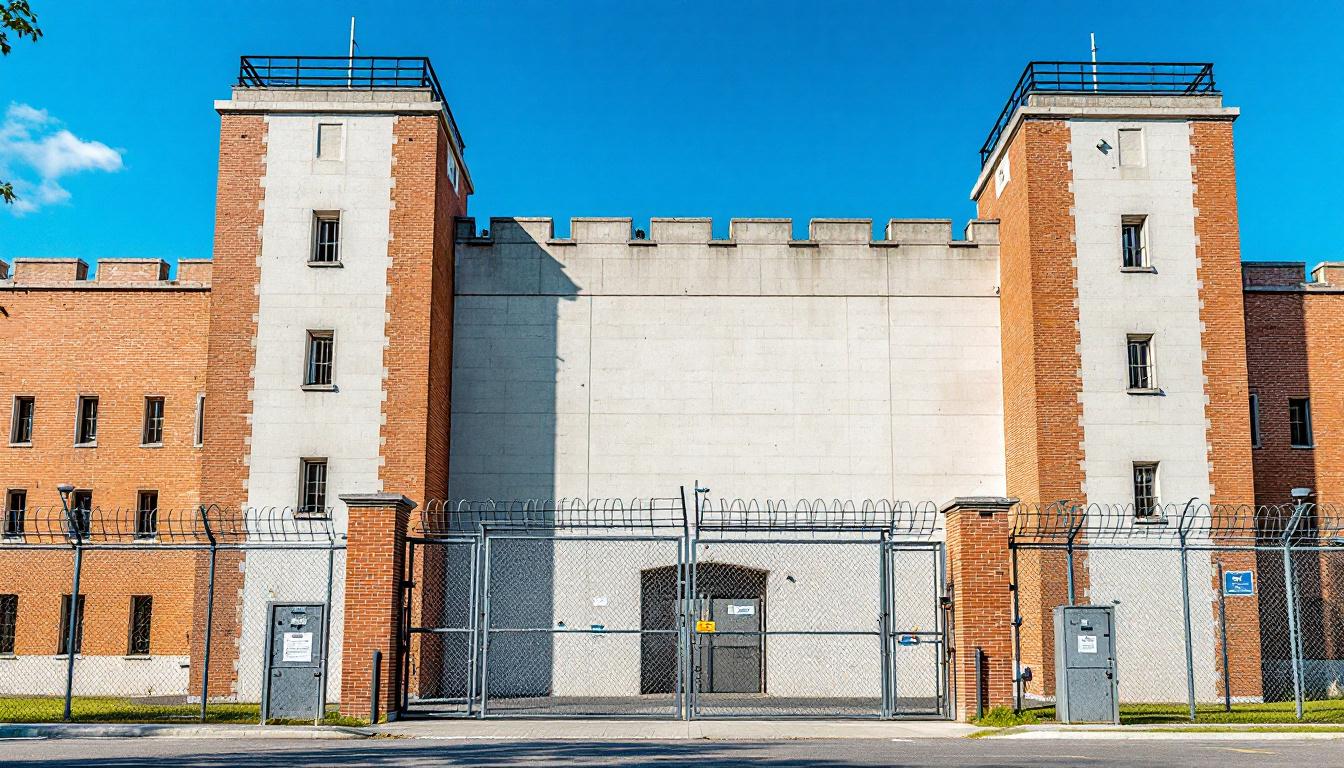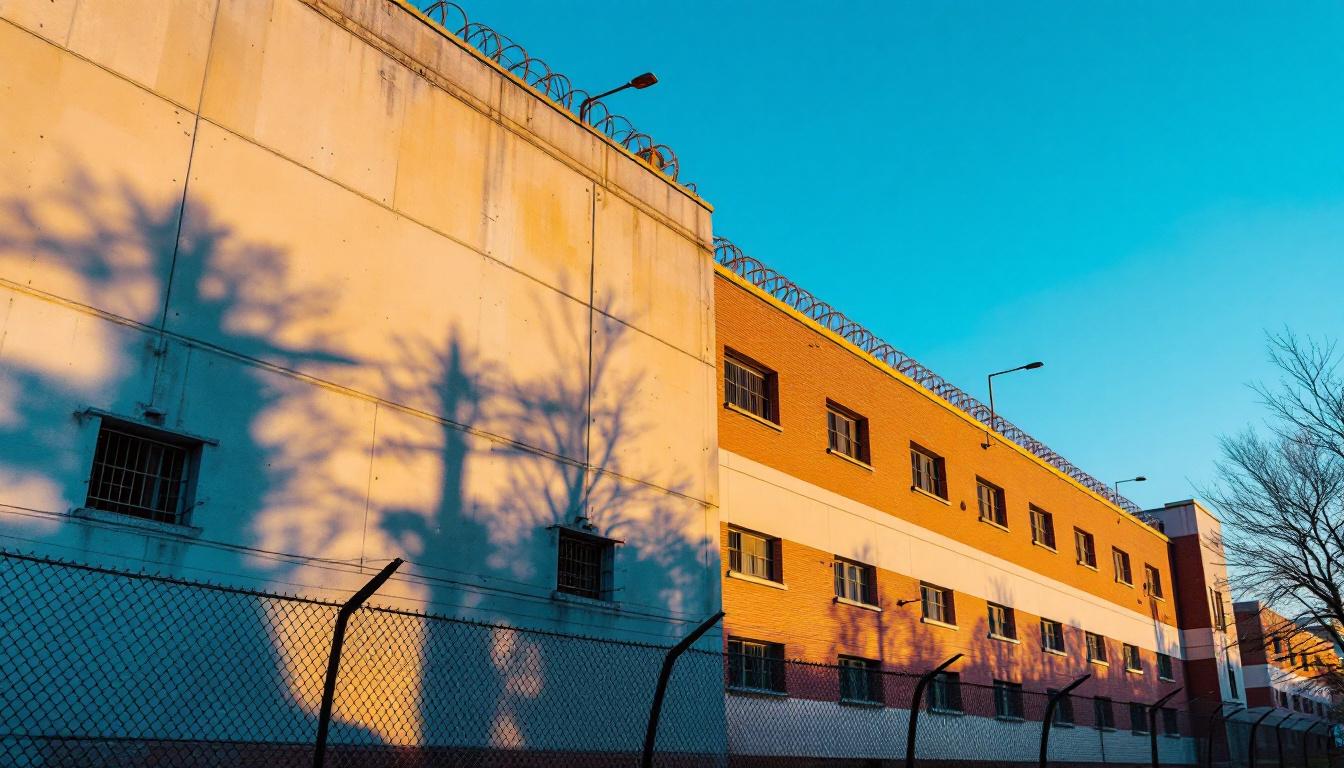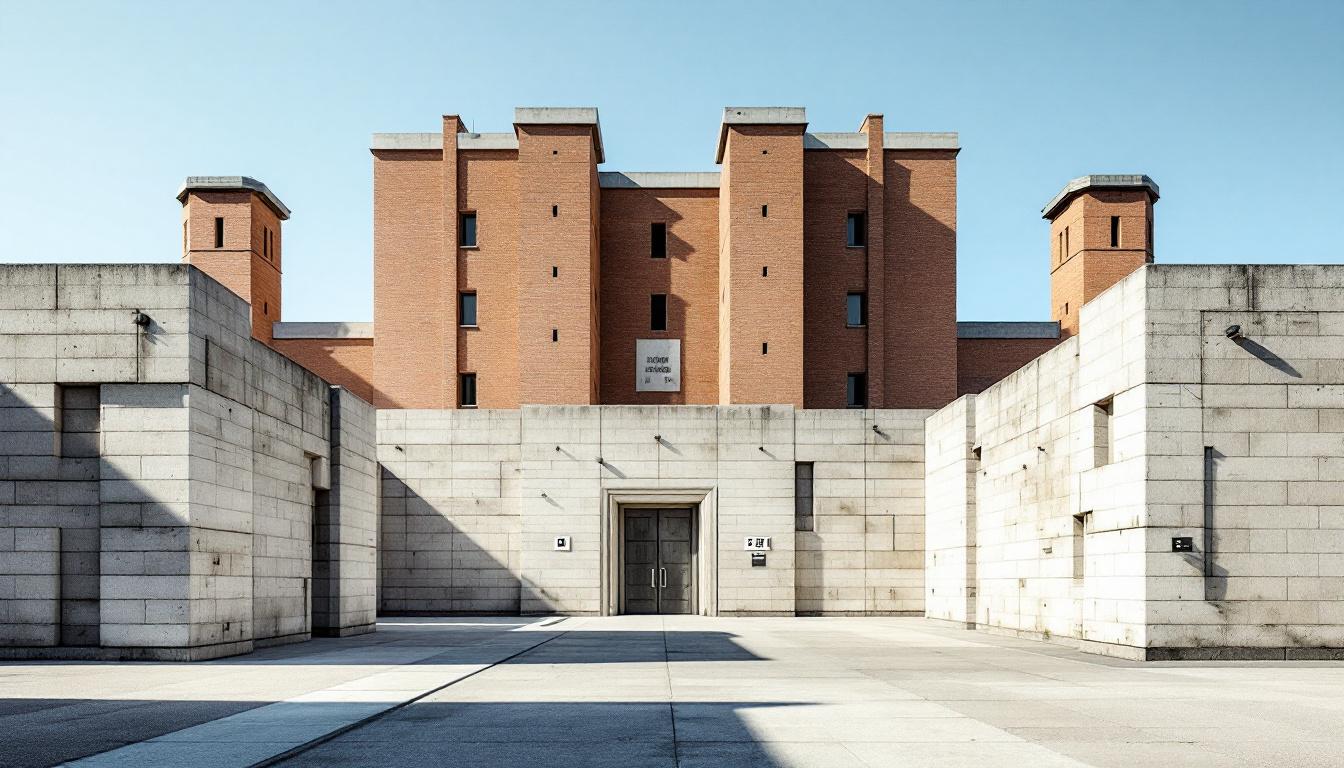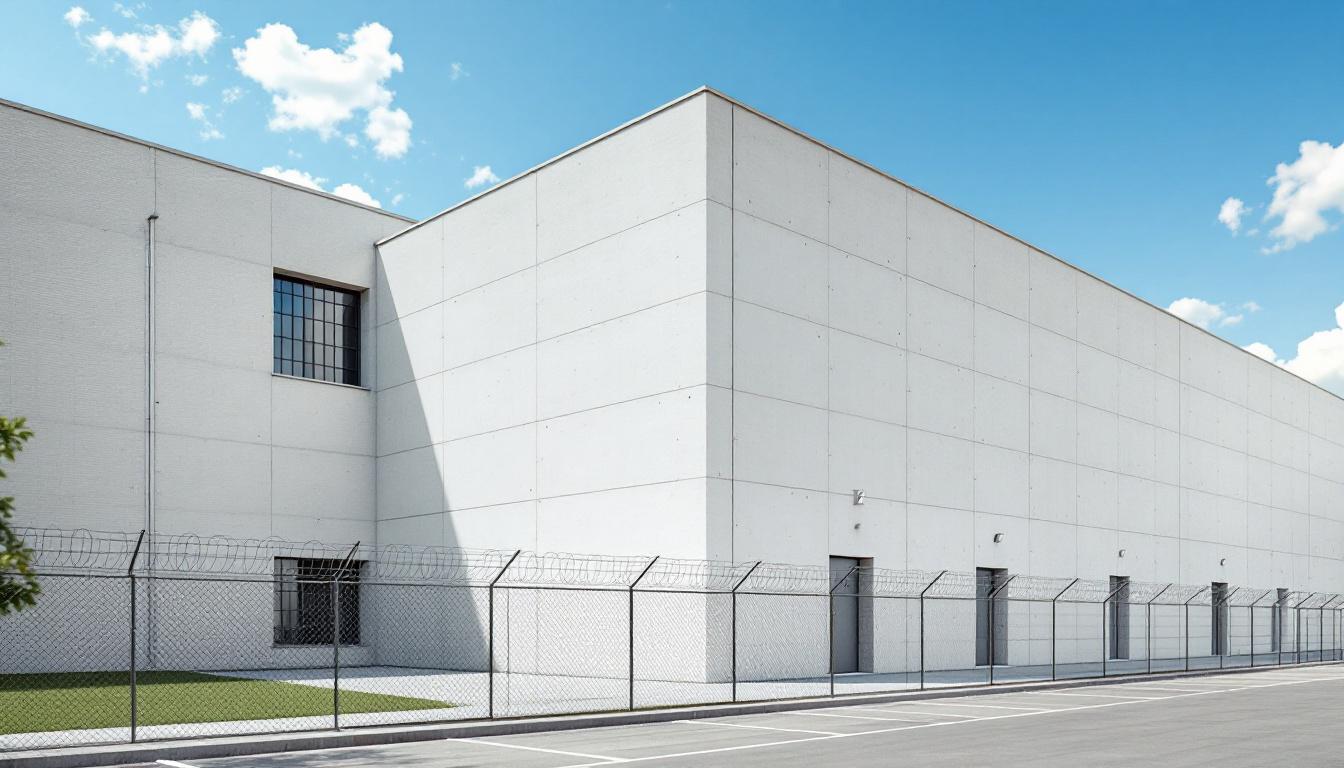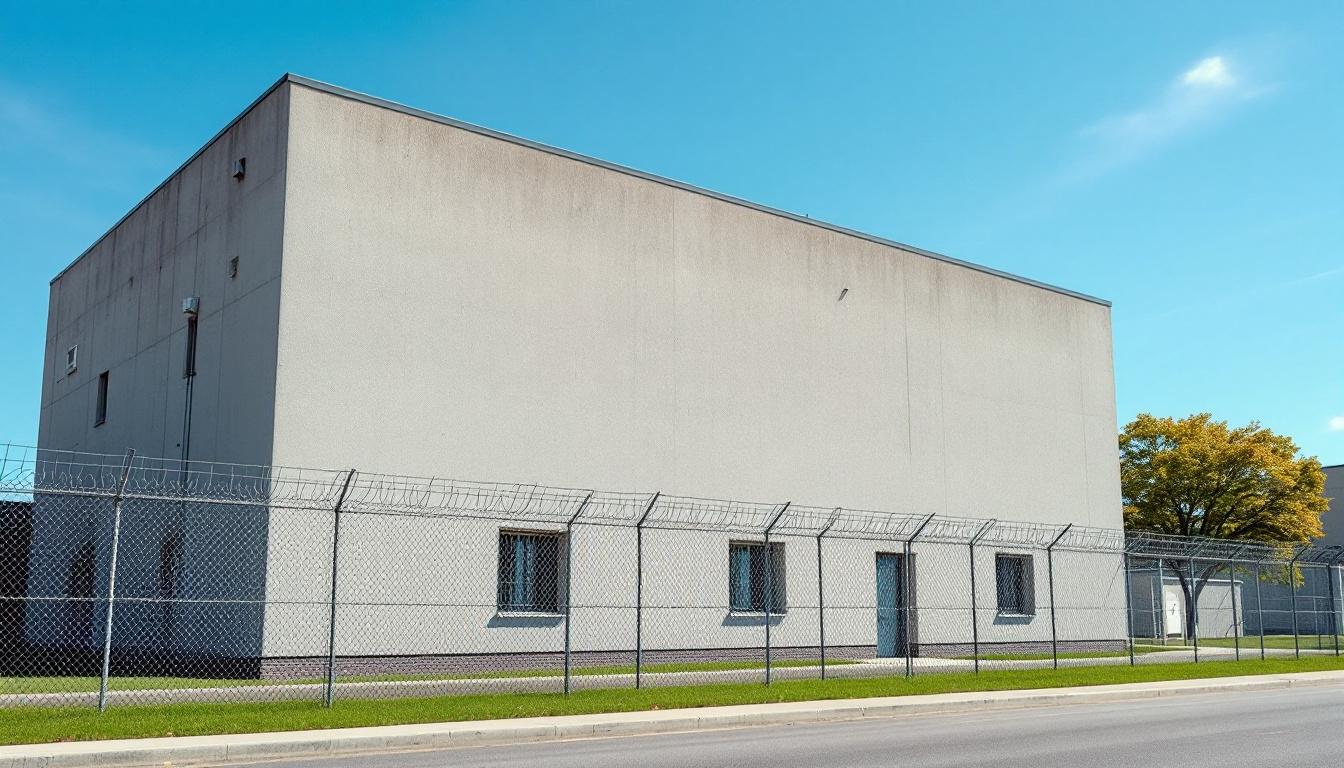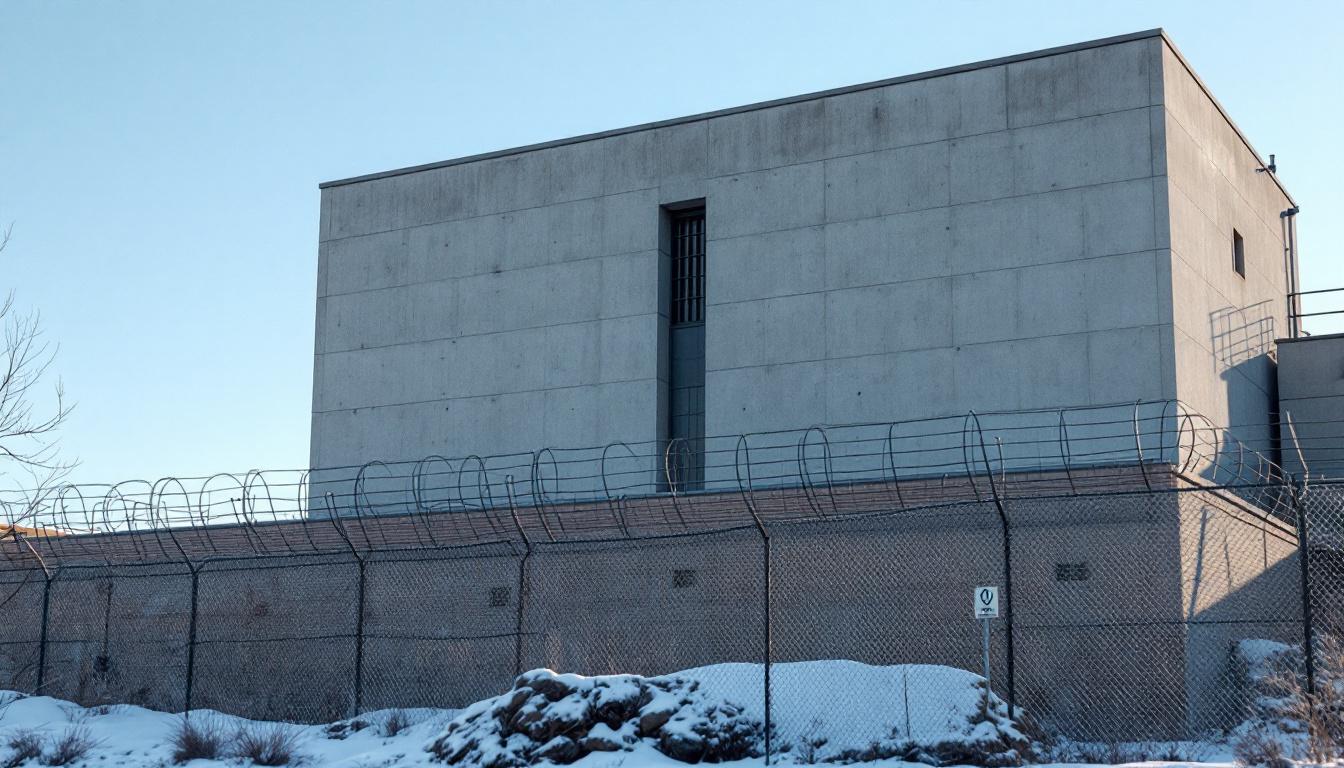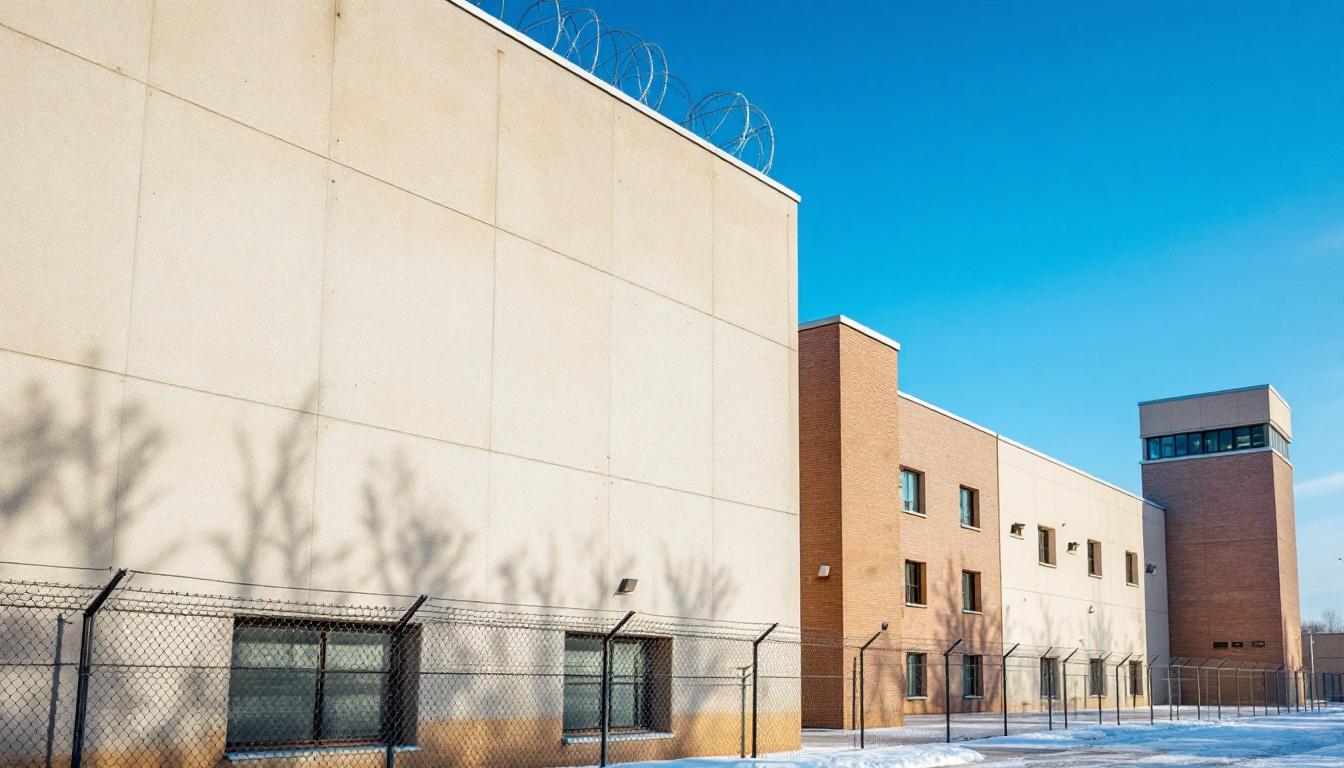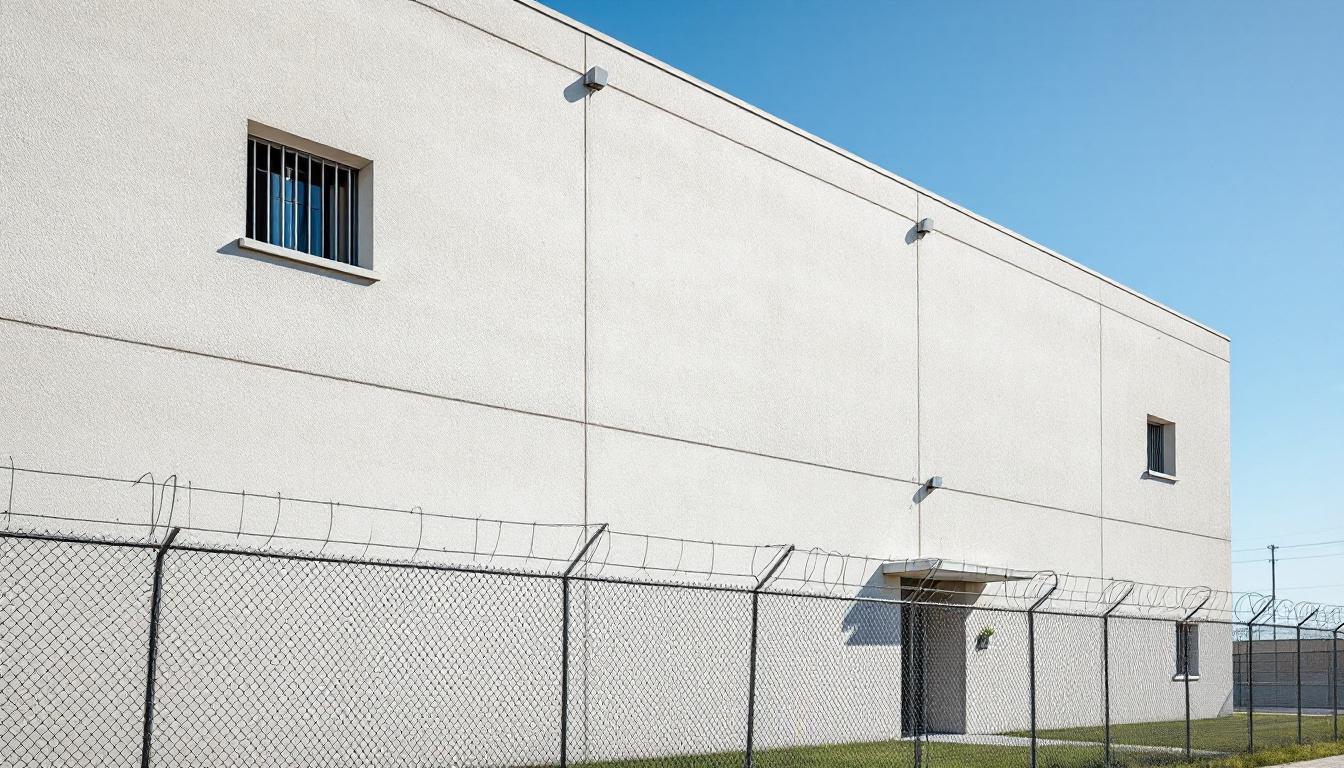
Quick Navigation
How to contact an inmate at Aiken County Detention Center
This comprehensive guide will walk you through how to connect with an inmate at Aiken County Detention Center. Follow the steps below to find an inmate and send letters and photos:
- Search for the inmate using our search tool below
- Create your account or log in to Penmate
- Write your message (up to 6,000 characters)
- Send instantly - inmates receive printed copies daily
Find an Inmate
Search for an inmate to start communicating today
Tip: You can search by first name, last name, or inmate ID number
To contact a person at Aiken County Detention Center start by searching for the person on the official facility website. Perform a search by following these steps:
- Step 1: Enter their first name and last name into the search form and click "Search"
- Step 2: Locate their inmate record
- Step 3: Write down their Inmate ID and any housing information provided
Important! Be sure to enter the person's full name. Nicknames should not be used.
How to Send Messages to Inmates

You can use your phone or computer to send emails, letters, and photos to an inmate. Messages are sent electronically to inmate tablets or kiosks at the facility. If you would like to send a message, start by searching for an inmate at Aiken County Detention Center.
Sending Photos and Postcards

A great way to send love and support to a loved one at Aiken County Detention Center is to send photos and postcards. It only takes a few minutes to send photos from your phone and it makes a huge difference. You can also mail postcards with words of support and inspiration, or design your own postcard for special moments like birthdays and holidays.
Important! Be sure not to send any explicit photos or they may not be approved by the facility. You can also use a photo printing app like Penmate to make sure your photos are printed at the correct size (4x6 or 3x5) and are mailed according to the rules and regulations of Aiken County Detention Center.
Frequently asked questions about Aiken County Detention Center
-
How long does it take to deliver a message?
If you're sending an email message your letter is usually delivered within 24-48 hours. For messages sent via mail you should expect delivery within 3-7 days. All messages will need be approved by Aiken County Detention Center.
-
How much does it cost to send a message to Aiken County Detention Center?
You can send a message free using your phone or mail a message via USPS for the price of a $0.60 stamp and envelope. You can also purchase credits or e-stamps from services starting at $1.99.
-
What services can I use to contact an inmate at Aiken County Detention Center?
Penmate
You can use Penmate to send letters and photos to an inmate from your phone. It's an easy way to stay in touch during your loved one's incarceration. Use the inmate locator to find an inmate's location and contact information, then you can send messages within a few minutes.
Securus messaging
Securus may be another option for communicating with an inmate at Aiken County Detention Center. You can create a friends and family account and purchase credits to send messages. All messages will be reviewed and must be approved by the facility.
JPay
Some county jails and state prisons may support sending messages with JPay. You must register an account with the system, find your loved one, and purchase stamps to send messages. For some locations you can also attach photos.
Smart Jail Mail
You may also check if Smart Jail Mail is available at Aiken County Detention Center. Smart Jail Mail is operated by Smart Communications and has contracted with some state and county jails. After purchasing credits, your messages and photos are sent to the facility, printed out, and then handed out to your loved one.
-
What is the mailing address of Aiken County Detention Center?
Mailing address:
Aiken County Detention Center
435 Wire Rd
Aiken, SC 29801
Phone: (803) 642-2040Business hours:
- Monday: 8:00 AM – 5:00 PM
- Tuesday: 8:00 AM – 5:00 PM
- Wednesday: 8:00 AM – 5:00 PM
- Thursday: 8:00 AM – 5:00 PM
- Friday: 8:00 AM – 5:00 PM
- Saturday: 8:00 AM – 3:00 PM
- Sunday: 8:00 AM – 3:00 PM
-
What are the visiting hours at Aiken County Detention Center?
Visiting hours at Aiken County Detention Center vary by housing unit and security level. Generally, visits are scheduled on weekends and holidays, with some facilities offering weekday visits. Contact the facility directly at (803) 642-2040 or check their website for the current visiting schedule. Visits typically last 30-60 minutes and must be scheduled in advance.
-
What items are prohibited when sending mail to Aiken County Detention Center?
Prohibited items typically include: cash, personal checks, stamps, stickers, glitter, glue, tape, staples, paperclips, polaroid photos, musical or blank greeting cards, hardcover books, magazines with staples, and any items containing metal or electronics. Only send letters on plain white paper with blue or black ink. Photos must be printed on regular photo paper (no Polaroids). Always check with Aiken County Detention Center for their specific mail policies.
-
How do I send money to an inmate at Aiken County Detention Center?
You can send money to an inmate at Aiken County Detention Center through several methods: 1) Online using JPay, Access Corrections, or the facility's approved vendor, 2) Money orders mailed directly to the facility with the inmate's name and ID number, 3) Kiosks located in the facility lobby, or 4) Over the phone using a credit or debit card. Fees vary by method, typically ranging from $2.95 to $11.95 per transaction.
-
Can I schedule a video visit with an inmate at Aiken County Detention Center?
Many facilities now offer video visitation as an alternative to in-person visits. At Aiken County Detention Center, video visits may be available through services like Penmate, Securus Video Connect, GTL, or ICSolutions. Video visits typically cost $10-20 for 20-30 minutes and must be scheduled in advance. You'll need a computer or smartphone with a camera and reliable internet connection. Contact the facility for their specific video visitation policies and approved vendors.
-
What identification do I need to visit an inmate at Aiken County Detention Center?
All visitors must present valid government-issued photo identification such as a driver's license, state ID, passport, or military ID. Minors must be accompanied by a parent or legal guardian who can provide the minor's birth certificate. Some facilities require visitors to be on the inmate's approved visitation list, which may require a background check. Contact Aiken County Detention Center for specific ID requirements and visitor approval procedures.
-
How can I find out an inmate's release date?
To find an inmate's release date at Aiken County Detention Center, you can: 1) Use the online inmate search tool if available, 2) Call the facility's records department, 3) Contact the inmate's case manager or counselor, or 4) Have the inmate provide this information during a call or visit. For privacy reasons, some facilities only release this information to immediate family members.
Facility Overview
Official Website

About Aiken County Detention Center
Within South Carolina’s correctional framework, comprehensive support services and structured programming form the foundation of operations at Aiken County Detention, SC. This detention center typically offers a range of individuals services designed to address both immediate custody needs and longer-term rehabilitation goals, including educational opportunities, substance abuse counseling, and vocational training programs that may help prepare residents for successful community reintegration.
Located in Aiken, the facility serves as an integral component of the region’s criminal justice system, housing individuals at various stages of the legal process while maintaining focus on safety, security, and personal development. The detention center generally operates under standard correctional protocols while emphasizing programs that address underlying issues contributing to criminal behavior. Mental health services, religious programming, and basic educational courses are commonly available to support residents during their time in custody.
As part of the broader South Carolina correctional network, Aiken County Detention typically coordinates with courts, probation services, and community organizations to facilitate case processing and transition planning. The facility’s approach to offender management often incorporates both accountability measures and supportive interventions, reflecting contemporary corrections practices that balance public safety concerns with rehabilitation objectives. Staff members generally work to maintain institutional order while connecting residents with resources that may assist in addressing personal challenges and developing life skills essential for successful community reentry.
Programs & Services
The multifaceted approach to individual development at Aiken County Detention reflects a commitment to addressing the diverse needs of those in custody through carefully structured opportunities. This comprehensive framework typically encompasses educational advancement, therapeutic intervention, and practical skill development, creating pathways that may support both immediate personal growth and long-term community reintegration. The facility’s programming philosophy often emphasizes the interconnected nature of learning, healing, and preparation for successful community return.
Educational opportunities frequently serve as the foundation for personal transformation, with services that may include basic literacy instruction, GED preparation, and continuing education pathways designed to meet individuals at their current academic level. Additionally, vocational programs often provide hands-on training in practical trades and marketable skills, enabling participants to develop competencies that may enhance their employment prospects upon release. These educational and vocational initiatives typically operate with flexible scheduling to accommodate the varying needs and circumstances of participants.
Therapeutic opportunities, including cognitive behavioral therapy sessions, may address underlying behavioral patterns while promoting emotional regulation and decision-making skills. Additionally, faith-based initiatives often provide spiritual guidance and community support for those seeking this form of personal development. The facility may also offer specialized veteran services, recognizing the comprehensive needs of former military personnel and providing targeted support that honors their service while addressing their specific challenges and circumstances.
Daily Life & Visitation
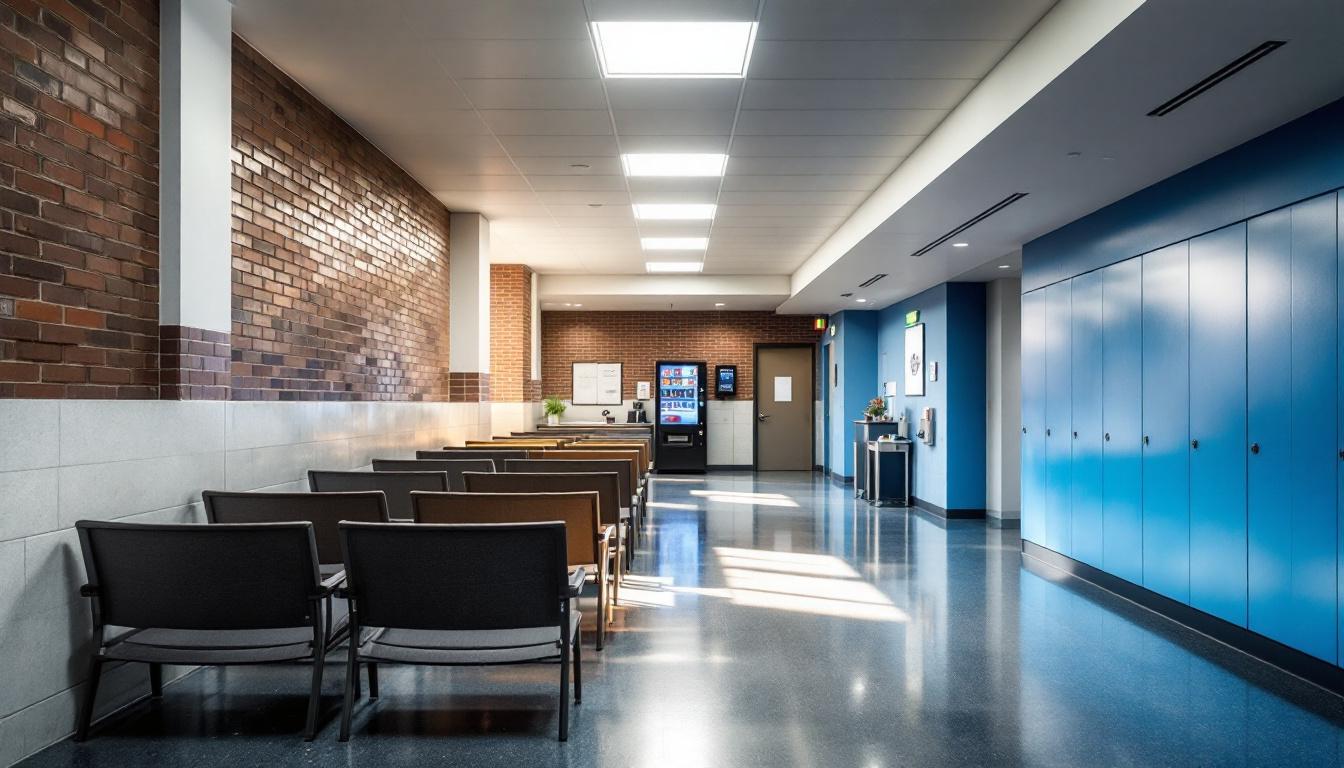
The rhythmic sound of meal trays being distributed signals the beginning of another structured day, as individuals at Aiken County Detention Center now settle into routines that have become familiar patterns of institutional life. Daily schedules typically revolve around regular meal times, with breakfast generally served in the early morning hours, followed by lunch and dinner at consistent intervals throughout the day. Individuals regularly participate in scheduled activities that may include educational programming, recreational periods, and work assignments within the facility, all designed to provide structure and purpose to their time while maintaining security protocols essential to the detention environment.
Living accommodations within the facility typically consist of housing units that vary in configuration, with individuals generally assigned to cells or dormitory-style arrangements based on classification levels and security requirements. Personal property allowances usually include basic hygiene items, limited clothing, and approved personal effects, while commissary services offer opportunities for individuals to purchase additional items such as snacks, toiletries, and writing materials. The physical environment generally maintains institutional standards, with common areas that may include dayrooms where individuals can engage in approved activities, watch television, or interact with others during designated periods.
Additionally, the facility typically offers various programs designed to support rehabilitation and personal development, which may include educational classes, vocational training opportunities, and counseling services depending on availability and individual needs. While maintaining security requirements, visitation policies generally allow family members and approved visitors to maintain contact through scheduled visits, and communication options often include telephone privileges and mail correspondence to help individuals stay connected with their support systems. Work assignments within the facility may involve kitchen duties, maintenance tasks, or clerical work, providing individuals with opportunities to contribute to facility operations while developing skills and maintaining productive routines during their time at the detention center.
Ready to Connect?
Start communicating with your loved one today
Search for an Inmate
